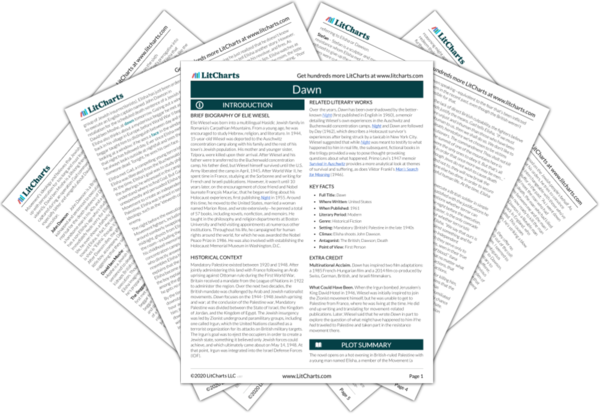The past often haunts Elisha throughout
Dawn. In particular, World War II seems to be a stark dividing line in his history: he implies that, after the war, God seems to have become absent. But when Elisha was younger, his whole world was filled with religious meaning. (Hasidic Judaism is a subset of Orthodox Judaism, more common in Eastern Europe before the Holocaust, which emphasizes God’s nearness in everyday life.) In the Bible, Elisha was the servant and successor of the Prophet Elijah, so the beggar’s appearance—and the possibility that such a figure could be a disguised Elijah—would be especially meaningful to him.
